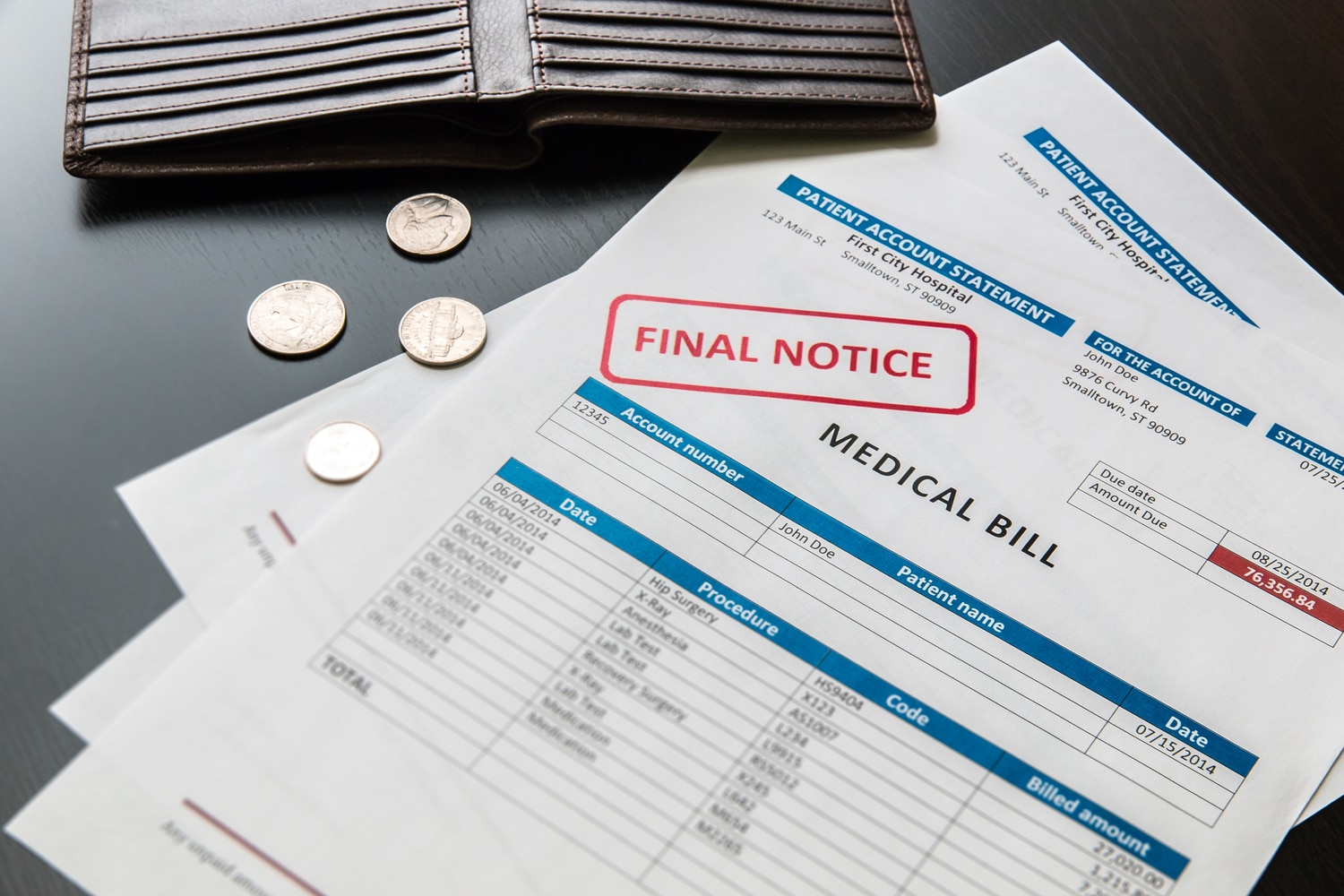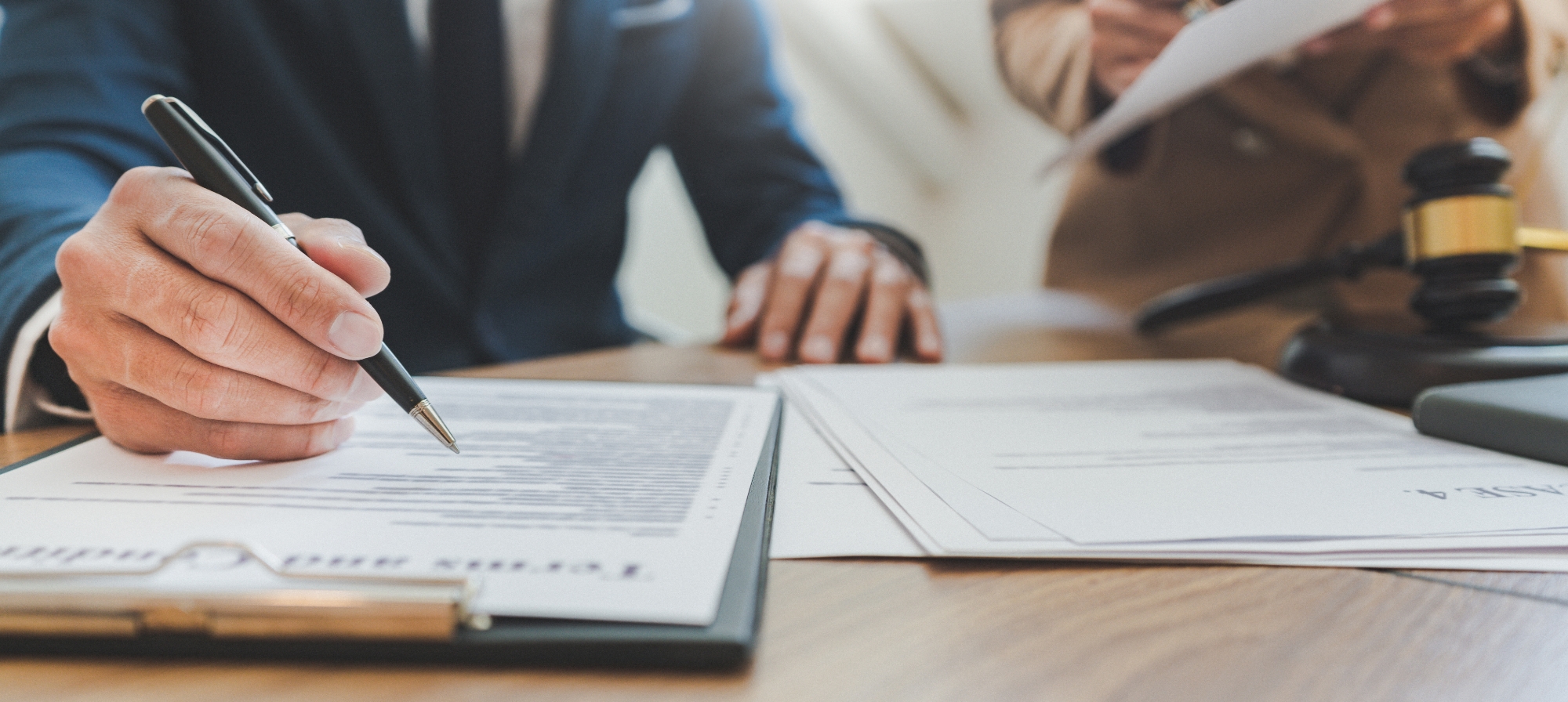Dealing with the aftermath of an auto accident can be frustrating and complicated. Many factors affect how you need to move forward: Do you have health insurance? Who was at fault? What kind of auto insurance did both drivers have? How severe were the injuries? Where did you seek medical care?
The answers to these questions — and more — determine the direction you need to take toward resolving the medical, emotional, and financial issues that arise after a car wreck. However, for many accident survivors, their medical bills are a top priority.
In this article, the personal injury lawyers at Crosley Law explain everything you need to know about crash-related medical treatment and bills.
Medical Bills After a Car Crash: Frequently Asked Questions
How Do Hospitals and Doctors Handle Crash-Related Bills?
When you are injured in a car wreck, hospitals will sometimes bill the auto insurance provider as the at-fault entity instead of the victim’s health insurance. Hospitals do this because they are more likely to get paid for the full cost of care when they bill the car insurance company than the often lower amount they typically receive from health insurance companies.
If a hospital cannot receive compensation through insurance, they may apply a lien. A hospital lien is a legal document that allows hospitals to recover the cost of medical care when they cannot collect from those who are underinsured, uninsured, or unable to pay for the treatment for another reason. They do this by attaching a lien to:
- An insurance claim for damages awarded to a patient for injuries that they received treatment for at the hospital.
- Damages received from a jury award
- Money awarded, including punitive damages, from a personal injury settlement that includes money for hospital-treated injuries.
Hospitals do this to ensure they are paid the full amount for the services they provided, not just what would be reimbursed by a health insurance company.
For example, your medical providers might agree to a “hold agreement” on the balance of what you owe or file a lien instead of sending you to collections. Or, medical providers will bill your health insurance company instead of the auto insurance carrier. In these situations, your health insurer will also request repayment out of your settlement or jury award.
For these reasons, liens are controversial. The argument among car accident victims and personal injury attorneys is that victims should keep that money for damages, pain, and suffering. If the hospital attached a lien to your medical bills, don’t wait to contact a lawyer.
A personal injury attorney can work with the hospital and insurance company to reduce the lien and maximize the settlement money for you.
Should I Just Pay My Crash-Related Medical Bills?
No one likes getting bills—especially for large medical expenses. However, you shouldn’t have to pay these bills if someone else was at fault. You also should get fair compensation for your injuries.
We know how tempting it is to accept the insurance company’s first settlement offer so you can pay your bills, but it’s probably not in your best interest. Typically, these early offers are unfairly low, and they likely won’t cover all your current (and future) medical care.
We know how tempting it is to accept the insurance company’s first settlement offer so you can pay your bills, but it’s probably not in your best interest. Typically, these early offers are unfairly low, and they likely won’t cover all your current (and future) medical care.
Instead, consult with an experienced car accident attorney. They can help you find a solution that pauses the collection process and gives you peace of mind.
The process of dealing with medical bills after a crash can be stressful, but it doesn’t have to be a mystery. Keep reading to learn what to do after a crash to protect your health, your case, and your options for financial recovery.
Step 1: Get the Medical Care You Need
Seeking medical treatment after a car accident is essential. If you delay care, you might not recover fully— and it’s incredibly difficult to win a personal injury claim without compelling medical evidence. However, many crash victims have difficulty getting the care they need because they lack insurance, have high health care deductibles, or can’t afford their co-pays.
If you’re worried about racking up medical bills that you can’t afford, take a deep breath. If someone else caused your crash, there’s a good chance that there are insurance policies that can help cover your medical expenses.
Please don’t hesitate to contact our law firm if you’re having a hard time getting the medical treatment you need after a car crash. We might be able to help you find practical solutions to your problems and can work to hold the at-fault parties responsible for their negligence.
Step 2: Collect All of Your Receipts and Medical Bills
After a car crash, it’s essential to document everything. Your visit information, bills, and receipts serve several purposes. First, consistent medical treatment can help identify all your injuries, ensure that you get the care you need, and potentially speed up your recovery.
Second, medical records and billing statements are necessary evidence in your personal injury claim. In a negligence claim, you must prove that someone’s carelessness or misconduct caused your injuries. Then, you must show that you suffered damages. Your medical records will outline your injuries—and the bills are part of your damages.
If you don’t have this documentation, tell your lawyers where you have received medical care so they can order copies of your records and bills. Some of the medical items to document include, but are not limited to:
- Ambulance rides and emergency room visits
- X-rays, scans, and bloodwork
- Prescriptions and OTC (over the counter) medicines
- Hospital and rehabilitation facility stays
- Regular doctor and specialist visits
- Physical and occupational therapies
- Transportation costs associated with medical treatment
Because the finances and laws involved in car accident situations are so complex, working with a personal injury attorney during this time is often the most prudent decision car wreck victims can make. An attorney can help you determine the value of your claim, understand the terms of any settlement offers that you receive, and fight to get the compensation you deserve.
RELATED: 5 Damages That Car Accident Victims Miss Out On
Step 3: Identify all the Insurance Policies That Cover Your Claim
Car insurance plays a major role in how things are paid for after a car crash. Insurance law varies from state to state. Texas has a fault-based system, which means that you’ll need to file a claim with the at-fault driver’s liability insurance policy.
If you can prove that the other driver was negligent, their auto insurance company should cover your damages up to the driver’s policy limits. Depending on your case, that can include:
- Medical care, including surgeries, therapy, and hospitalizations
- Mental health treatment
- Medications and medical devices
- In-home care, including home health aides and visiting nurses
- Long-term care expenses
- Improvements you need to make to your home and vehicle, such as ramps and lifts
You might also receive compensation for your lost income, pain and suffering, and other physical and emotional losses.
However, that is just the beginning of your personal injury claim. In Texas, most drivers have additional insurance policies that can help pay their medical bills.
- Personal Injury Protection (PIP): this type of no-fault insurance should help pay for your medical bills and lost income. Unless you declined it in writing, your Texas auto insurance policy should include some PIP coverage.
- Uninsured and Underinsured Motorist (UM/UIM) Coverage: if the at-fault driver didn’t have enough insurance to cover your damages, you might be able to file a UM/UIM that can pay some (or all) of the difference. Again, you should have UM/UIM coverage unless you declined it in writing.
- Med Pay: this optional insurance might help pay your medical bills as well. Med Pay is like PIP but does not cover lost income or wage-earning capacity.
You must identify every insurance policy that might cover your injuries. This can help you recover fully and get the medical and financial support that you need.
Step 4: Recovering a Fair Settlement in Your Case
If you suffered severe injuries in a wreck, you might face a lifetime of medical care. These expenses must be considered when you are negotiating with the insurance companies. Crosley Law meticulously calculates our clients’ settlement values, consulting with medical experts, life planners, and accountants when necessary.
We also make sure that every one of our cases is trial-ready. If the insurance companies refuse to offer a fair settlement in your case, we will be prepared to take it to trial and let a jury decide.
RELATED: Andrew’s Story: Crosley Law More Than Quadruples a Settlement Offer
Step 5: Negotiating Discounts With Your Medical Providers
As we mentioned above, recovering a settlement or jury award isn’t the end of your case. If your healthcare providers filed liens or have unpaid bills, our team will work with them. Sometimes, we can negotiate discounts or reductions in healthcare liens and bills, helping get more money in your pocket.
RELATED: Negotiating Medical Bills: How a Lawyer Can Help After a Crash
The Attorneys at Crosley Law Firm: Fighting for You
Here at Crosley Law, we know the ins and outs of car accidents, hospital liens, and personal injury settlements, and we are prepared to fight for your interests in negotiations and the courtroom. Our dedicated and knowledgeable legal team will work to get the justice and compensation you deserve. If you or someone you love has been injured in a car accident, please contact us for a free consultation by filling out our convenient online form or calling 210-LAW-3000 | 210-529-3000.
The content provided here is for informational purposes only and should not be construed as legal advice on any subject.









